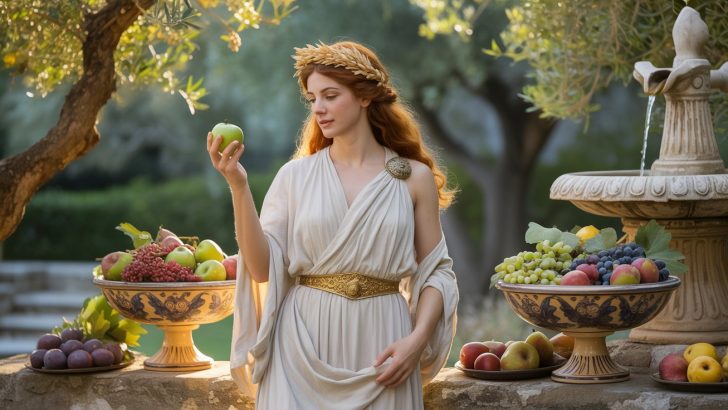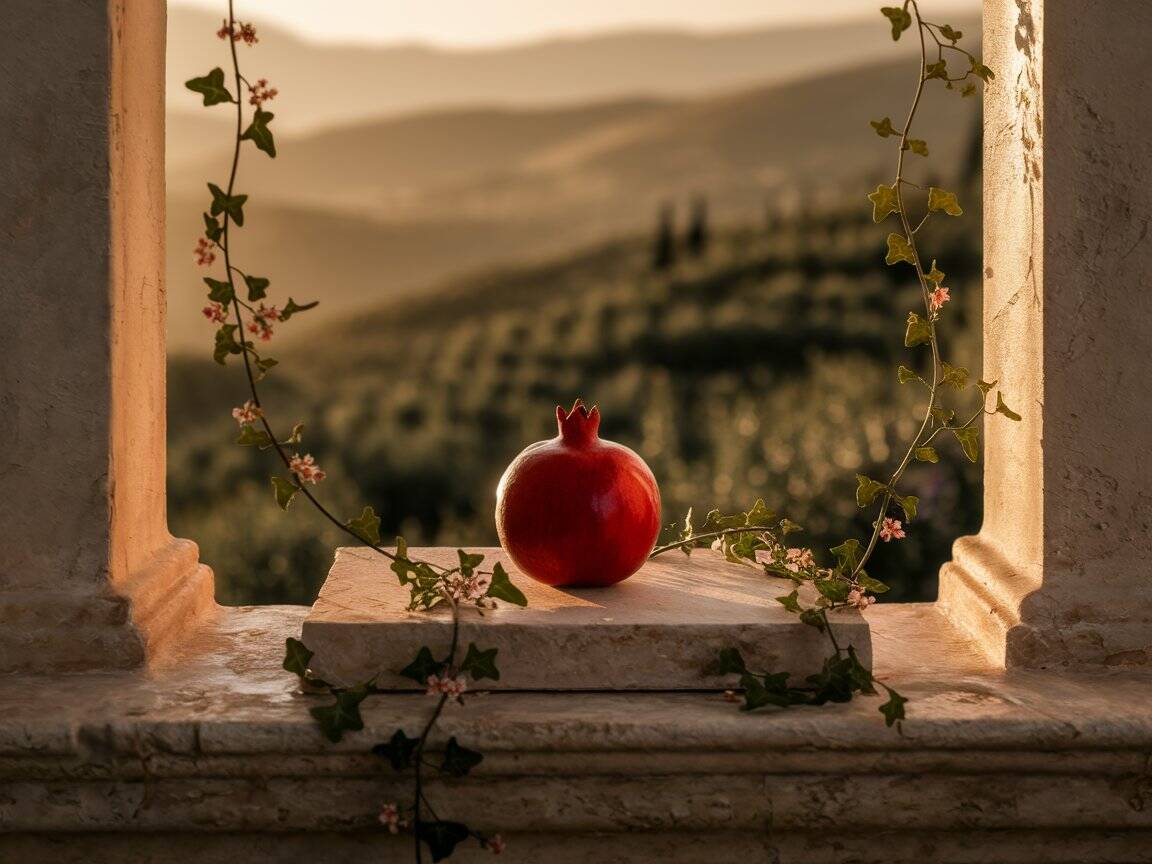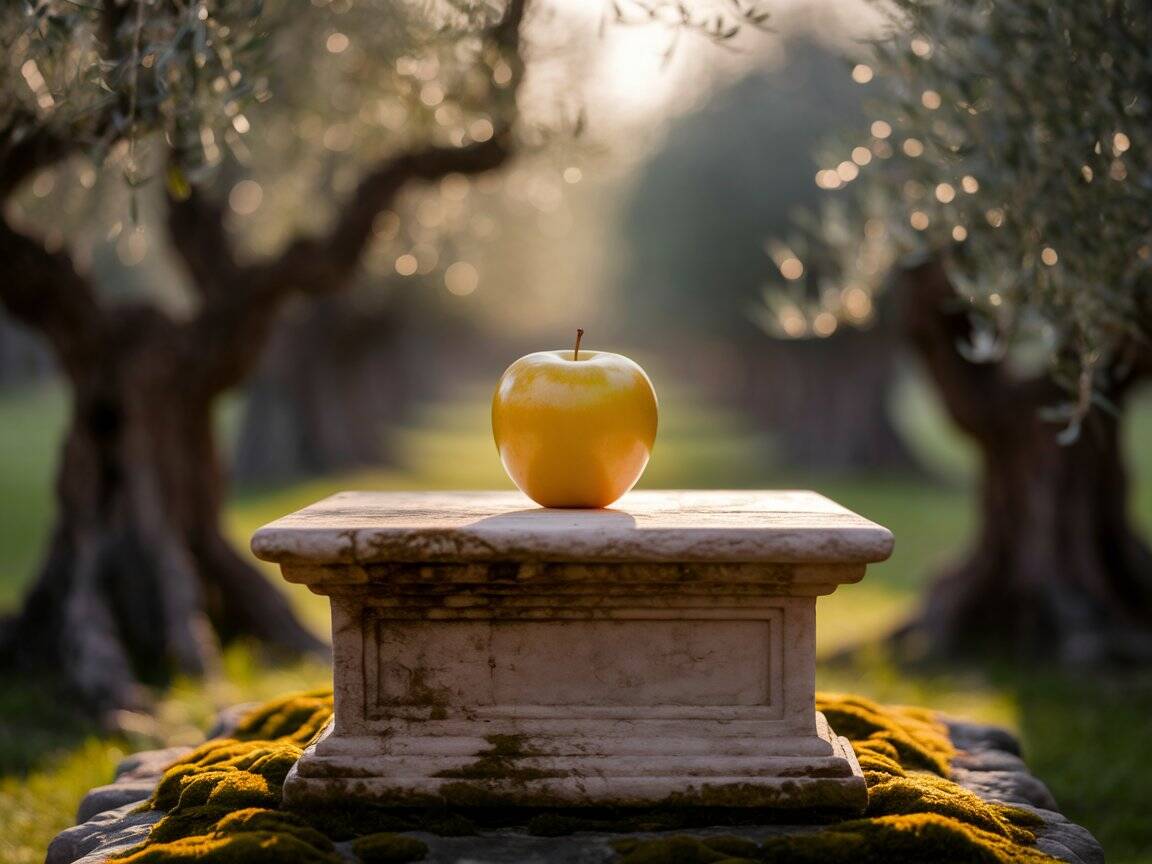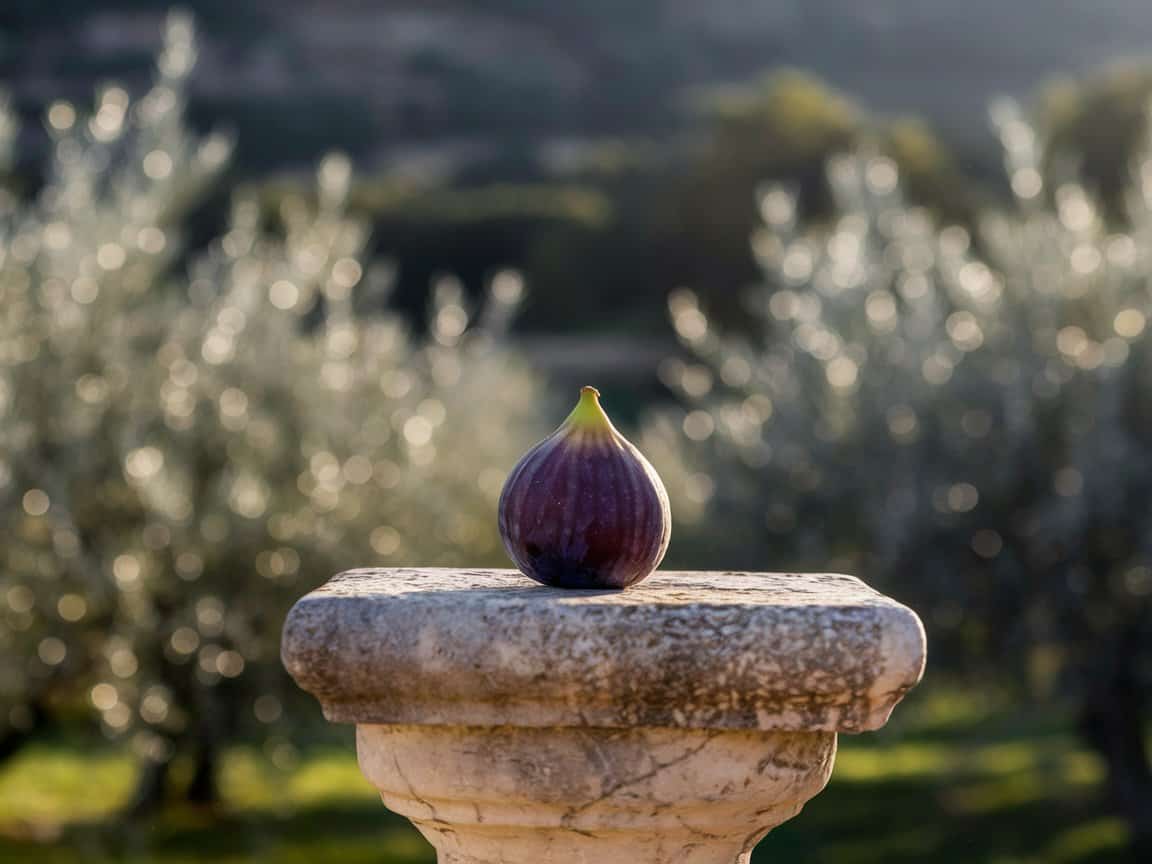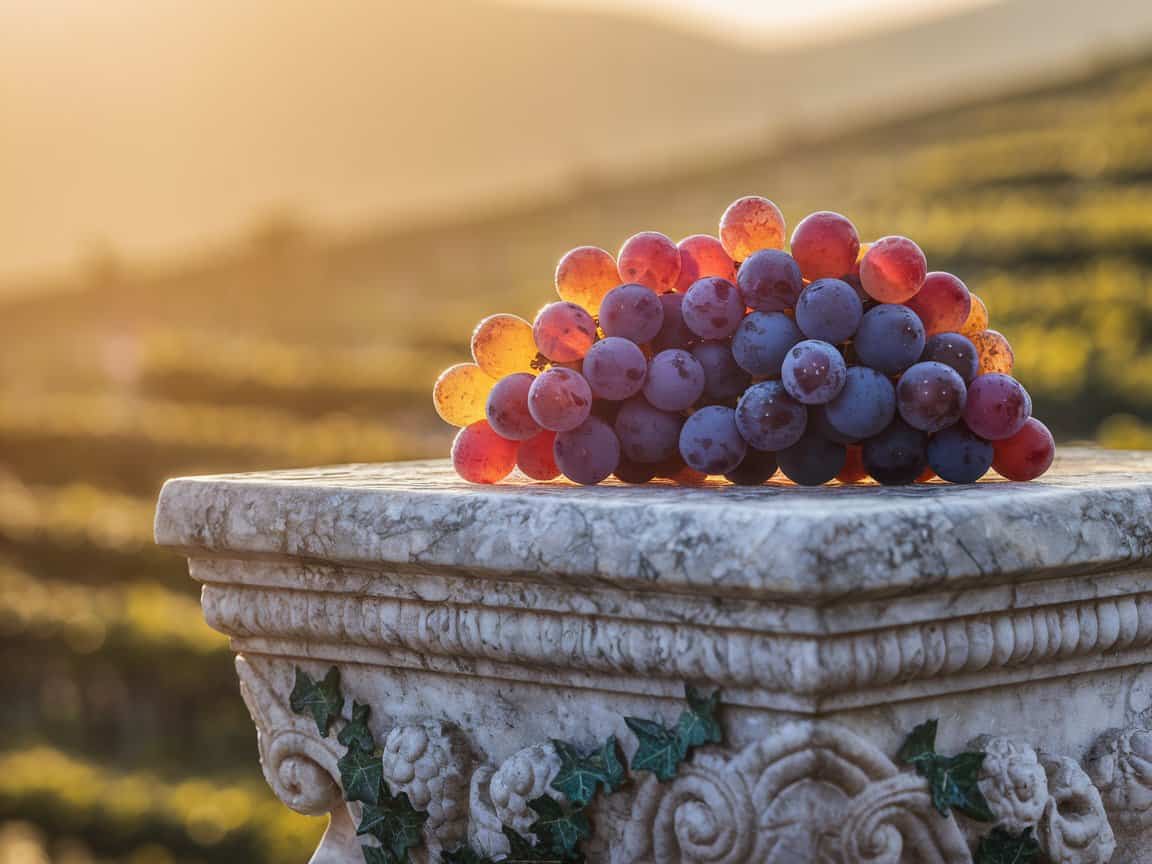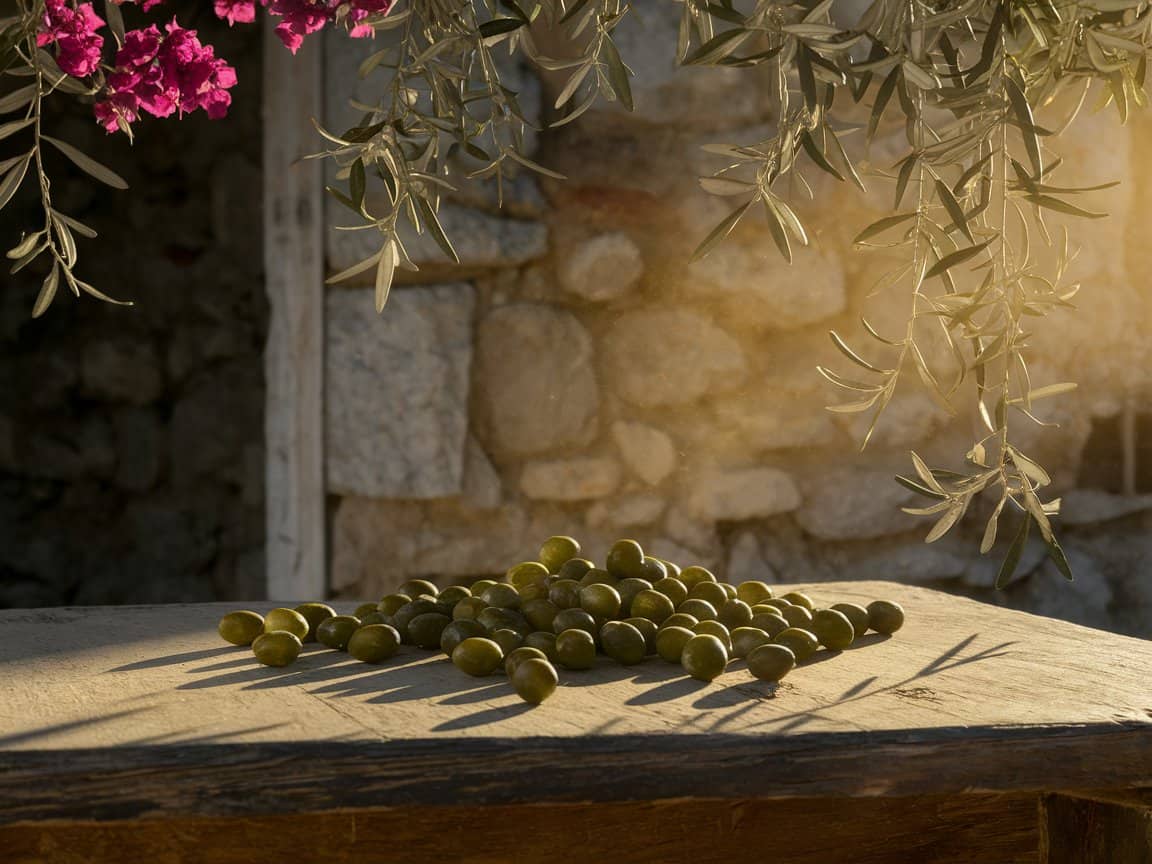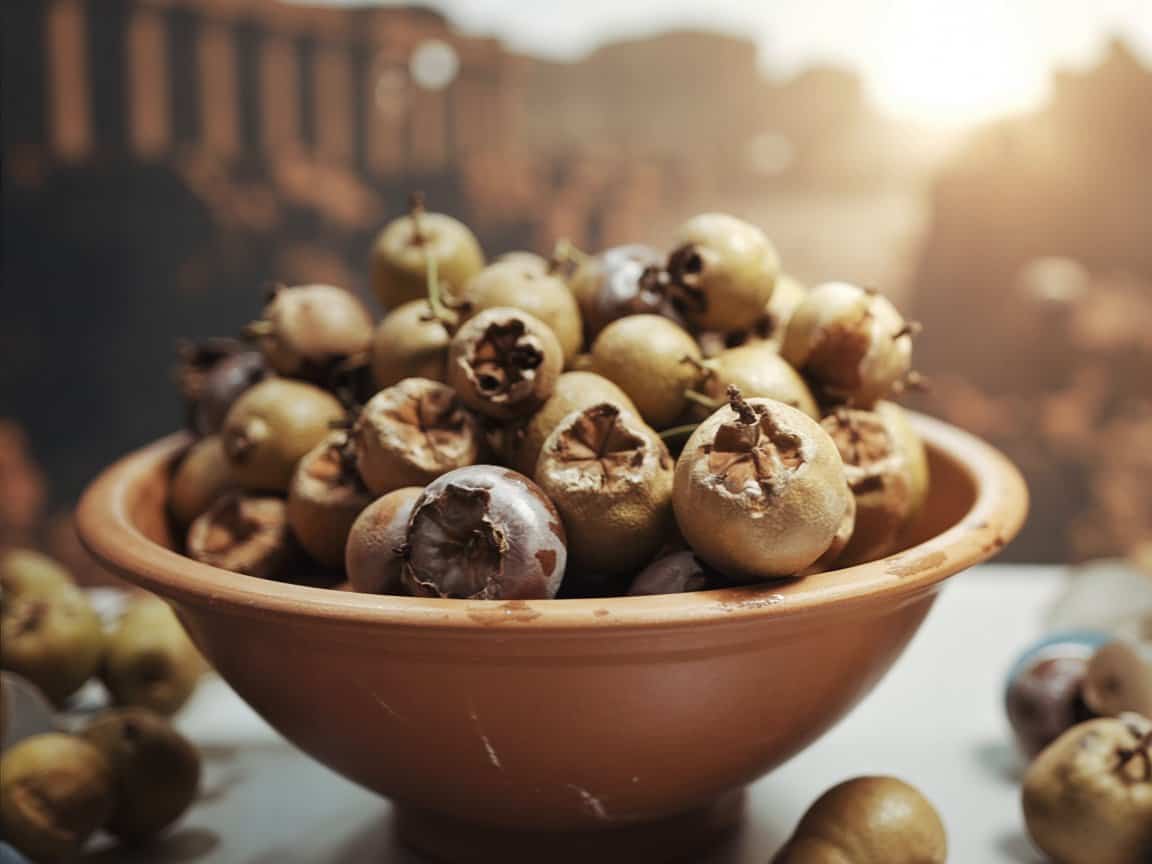Fruits are more than food in Greek mythology. They are often symbols of desire, passion, temptation, and the connection between gods and mortals.
These fruits appear in stories that explore love in its many forms, from fleeting infatuation to eternal devotion.
Ancient Greeks believed that certain fruits could hold magical qualities, capable of inspiring affection, sparking romance, or even complicating relationships.
Each fruit carries layers of meaning, woven into tales that have endured for thousands of years. Let’s explore nine mythical fruits and the fascinating love stories they shaped.
1. The Pomegranate: Eternal Love and Desire
The pomegranate is perhaps the most famous fruit in Greek love mythology. It is forever tied to the story of Persephone and Hades.
Persephone ate a few seeds of the pomegranate while in the Underworld, binding her to Hades for part of each year.
The fruit became a symbol of devotion, compromise, and the inescapable nature of love’s bonds.
Couples often used pomegranate imagery in weddings and fertility rituals to signify enduring passion and the cyclical nature of affection.
The fruit’s red seeds suggest both the sweetness of love and its sometimes dangerous intensity.
2. Apples: The Golden Prize of Desire
Apples frequently appear in Greek myths as symbols of attraction and contest. One famous tale is the Judgment of Paris, where a golden apple inscribed “for the fairest” sparked the conflict that led to the Trojan War.
Aphrodite claimed the apple and promised Paris the love of the most beautiful mortal woman, Helen. This story links apples to temptation, attraction, and desire that can change destinies.
In romance, giving an apple represented both admiration and the playful challenge of love. Its glossy skin and sweetness made it a metaphor for the allure of romance itself.
3. Figs: Fertility and Courtship
Figs appear often in Greek mythology as symbols of fertility, abundance, and sensuality. They were associated with Dionysus, the god of wine, pleasure, and ecstasy.
In love stories, figs were sometimes offered to potential partners as invitations to courtship or intimacy. Their soft, rich flavor became a symbol of indulgence and the joys of shared passion.
Figs also reminded people that love requires patience—just as the fruit ripens slowly, strong relationships develop over time, growing in sweetness with care and attention.
4. Grapes: Celebration and Union
Grapes are closely tied to Dionysus, whose myths emphasize pleasure, celebration, and the binding joy of shared experiences.
In love stories, grapes were often part of rituals that brought couples together, whether through feasting, dance, or offerings to the gods.
They symbolize not only physical attraction but also harmony and unity. A vine twisting and growing upward mirrors the intertwining of two lives, showing that love thrives when nourished.
Grapes remind us that romance often flourishes in moments of joy and communal celebration.
5. Mulberries: Passion and Transformation
The story of Pyramus and Thisbe connects mulberries to tragic love and transformation. According to the myth, Pyramus and Thisbe, young lovers forbidden to unite, met in secret under a mulberry tree.
A series of miscommunications led to their untimely deaths, and their blood stained the mulberries dark red. The fruit became a symbol of deep passion, sacrifice, and the intense emotions that accompany love.
Mulberries remind us that romance can be both beautiful and bittersweet, carrying lessons of courage and vulnerability.
6. Olives: Fertility and Long-Lasting Bonds
Olive trees were sacred to Athena, goddess of wisdom, and often appear in myths related to marriage, prosperity, and lasting love.
Olives symbolize endurance and nourishment, showing that strong relationships require both patience and care.
Offering olives to a lover was more than a gesture of affection – it was a promise of support and partnership.
The olive’s resilience in harsh climates mirrors the perseverance needed in long-term love, making it a powerful emblem of commitment and emotional growth.
7. Quinces: Desire and Aphrodite’s Blessing
Quinces were sacred to Aphrodite, linking them directly to desire, attraction, and divine blessing. In ancient Greece, quince trees were often planted near homes or used in wedding ceremonies as symbols of love and fertility.
The fruit’s fragrant aroma and golden hue represented the sweetness of romance and the warmth of affection.
Quinces also appear in myths as gifts that sparked passion or sealed promises between lovers, reminding us that love is often nurtured through small, meaningful gestures.
8. Medlar: Hidden Sweetness and Patience in Love
The medlar is a lesser-known fruit in Greek myths, prized for its unusual ripening process.
Unlike most fruits, medlars must soften after harvesting before they are ready to eat, a trait that became a symbol of patience and maturation in love.
Lovers often saw the fruit as a reminder that deep affection cannot be rushed and that true connection develops over time.
In some tales, medlars were given as tokens of long-term devotion, teaching that sweetness in romance often comes after careful attention, understanding, and waiting for the right moment.
The fruit encourages patience and respect, showing that love’s richest flavors appear when nurtured thoughtfully.
9. Mandrake Root: Magical Influence on Love
Although technically a root, mandrake is often treated like a mythical fruit due to its shape and legendary qualities.
Ancient Greek stories describe mandrake as possessing magical powers, including the ability to attract love and influence desire.
Lovers used it in potions, charms, or rituals to ignite attraction or strengthen bonds. Its hallucinogenic properties made it mysterious and slightly dangerous, reminding us that love can be unpredictable and that attraction sometimes comes with risks.
Mandrake symbolizes the magical, transformative power that love can have over the heart and mind.

Sempre senti uma forte ligação com o Divino desde o meu nascimento. Como autora e mentora, a minha missão é ajudar os outros a encontrar o amor, a felicidade e a força interior nos momentos mais sombrios.

